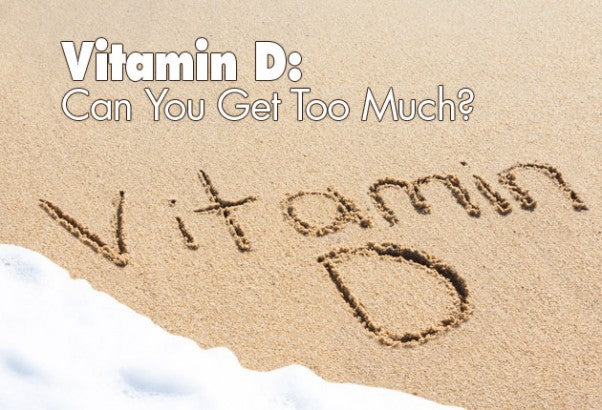While it's true that vitamin D absorption is self-regulating when you're in the sun (a shade of pink skin tells your body you've had enough), the same cannot be said of vitamin D supplementation. You can, in fact, overdo it.
And, surprisingly, the symptoms of too much or too little vitamin D have something in common — hypertension.
Too much synthetic vitamin D (specifically, megadoses of 50,000 IU), according to Dr. Carolyn Dean (a widely recognized expert on magnesium), upsets your body's calcium/magnesium balance, the result of which is hypercalcemia (too much calcium in the blood).
And when there's too much calcium in the blood, it can lead to high blood pressure and heart disease.
"When you take that much vitamin D, the strain on magnesium is dramatic," says Dr. Dean. "The accumulation of calcium is dramatic. And since vitamin D is a hormone with a feedback loop for calcium, when the D levels are low, does that mean it has enough calcium and doesn’t want to make more vitamin D to pull in more calcium? We don’t even know the answer to that question."
On the other side of equation, a brand new study has shown that supplementing low vitamin D levels for 3 months alleviated hypertension in middle-aged African Americans.
By the way, because skin pigment determines the rate of vitamin D absorption, the darker your skin, the more time you need in the sun. African Americans with very dark pigment may need up to 6 times the sun exposure to develop the same amount of vitamin D as someone with northern European ancestry, thus vitamin D deficiency is more common in African Americans.
So, how much is enough? How much is too much?
The African Americans in the study noted above had blood levels of 25 ng/mL of vitamin D, which was considered low. Dr. Dean is of the opinion that 40 ng/mL is sufficient, while other alternative health experts recommend 40-70 ng/mL.
While many people take a vitamin D supplement just because everyone else does, it's always best to have your blood tested for vitamin D levels first (serum concentration of 25(OH)D is the best indicator of vitamin D status) and then consult a health practitioner you trust.
Do you take a vitamin D supplement? If so, how much?





